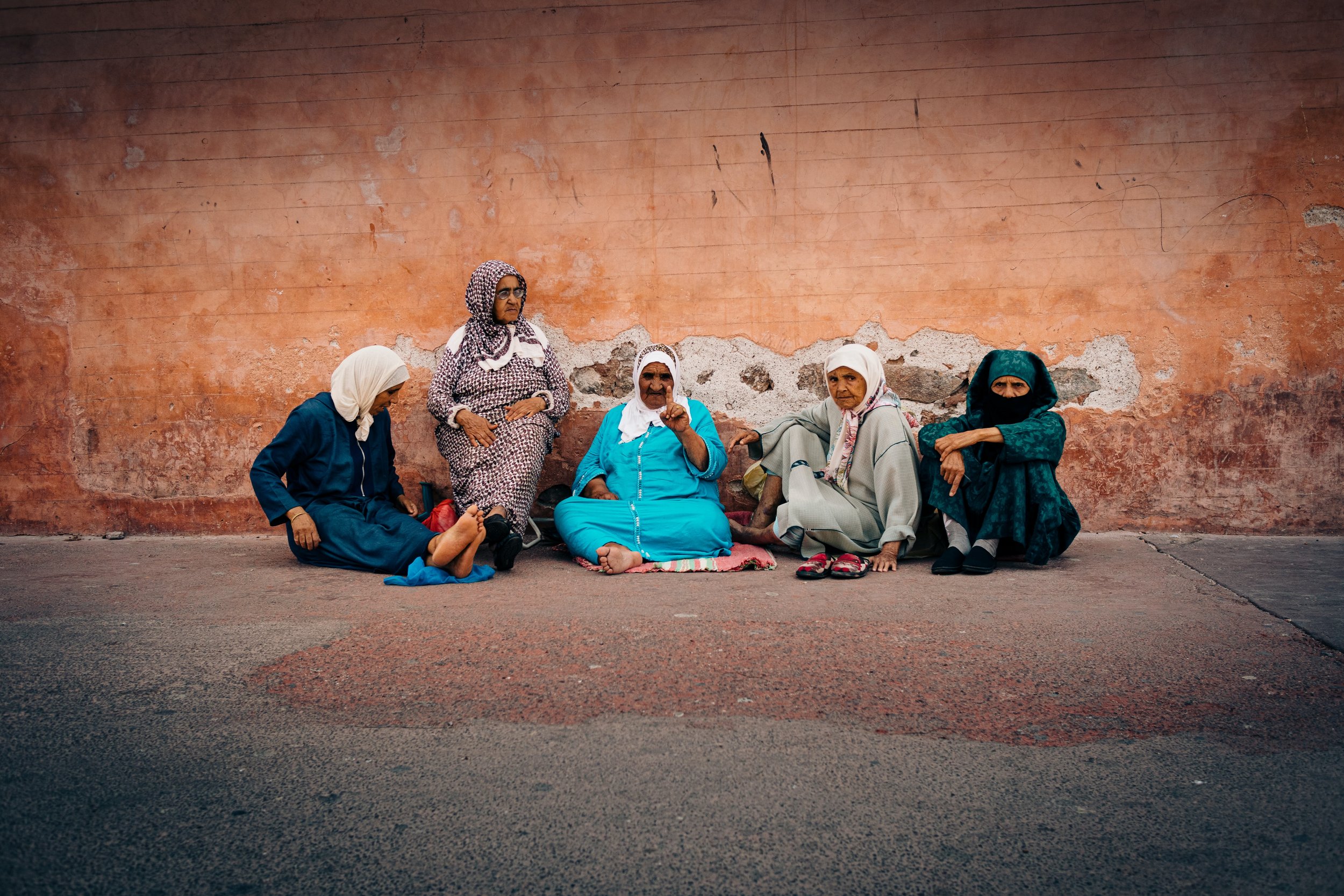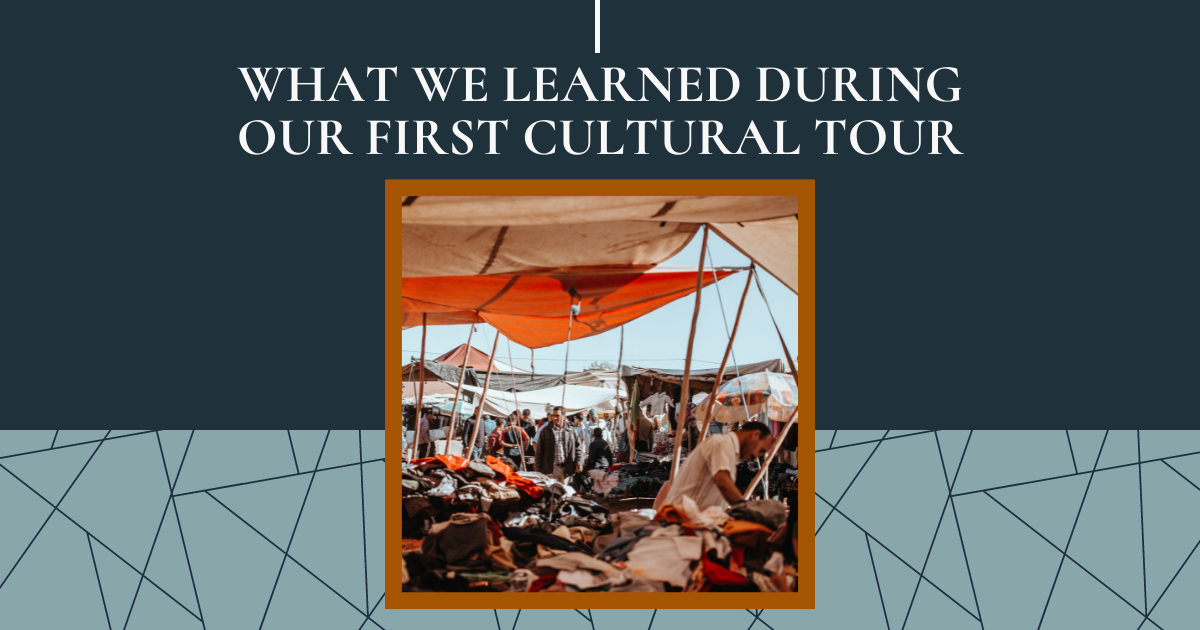Being a Respectful Traveler
There is a stereotype of the “Ugly American” tourist being loud, thoughtless, and even arrogant. Living overseas, we often like to ask people from different cultures what they think about Americans. Our Canadian friends point out that the way you can identify a group of Americans versus a group of Canadians is by the overall volume of the group, which will tend to be louder with Americans. Our Moroccan Arabic teacher notes that with Americans, their belongings tend to be bigger. When he said this, Michael and I each reached for a water bottle and coffee cup to facetiously ask him to elaborate, because with our 40 oz. (over a liter) water bottle and 16 oz. (almost 500 mL) coffee cup (that we affectionally refer to as a coffee bowl), we couldn’t possibly understand to what he was referring. Another expat living in Morocco has pointed out that Americans smile more than other cultures. There are cultural stereotypes that we encounter while traveling, but most of us would rather not reinforce the negative ones, and want to avoid being like the “Ugly Americans” other countries may think of. When visiting another culture, here are some things to keep in mind to be respectful and culturally appropriate.
Lead from relationships
If we come from a Western country, we are most likely from a cold-climate culture. We explored some of the general differences between a hot-climate and cold-climate culture in a previous blog post. The main difference between these two types of cultures is a relationship orientation versus a task orientation. This isn’t to say that if you come from a cold-climate culture, you can’t be relational, but in general, the task comes first, and relationships happen after. If you come from the Western world but are traveling to the two-thirds world, we suggest you really try to shift your focus to start from a place of relationship. Even if your travels are for business, or if you are just visiting a particular place for a short time, try to be a gracious guest in the culture, and remember that the people you are interacting with are people, too.
When it comes to communication, this means that, according to Sarah Lanier, “all hot-climate communication has one goal: to promote a ‘feel-good’ atmosphere, a friendly environment.” One way we see this in Moroccan communication is with greetings. In the US, when we greet someone, it is acceptable to just ask “How are you” once, in one form. In Morocco, greetings, even in passing, include at least three variations of the question “how are you?” “How are you, is everything good, is your health well, are you well, how’s your family”—this all runs together, often spoken overtop of the other person who is asking the same. Just asking “How are you?” and then jumping into the transaction comes off as very brusque. When working interculturally, it is appropriate to ask your colleagues about family wellbeing before jumping into the work.
Besides greetings, it is also helpful to find a way to be kind and less direct in our responses. In touristy areas of Morocco, there are often workers in front of restaurants whose job it is to try to beckon customers to eat there; instead of saying “No, thank you” we try to say “Next time” to maintain the friendly environment.
Finally, remember the adage to do unto others as you would have them do unto you. Treat people with kindness, respect, and dignity. One example of how to do this is to ask people for permission before taking their picture. I would personally appreciate this, just so I don’t end up looking weird in a photo. But for many Muslims, they have religious stance on pictures and images of people, and would prefer not to have their picture taken. It is always better to ask first, but be aware that in touristy areas, it will be common for people to pose for a photo but also to expect some small payment in return.
Be respectful with eating
As we strive to respect the culture when we are traveling, it will be important to be respectful as we eat, especially with people from another culture. The meal with Moroccans will start when the hot says, “bismiallah” (in the name of God). In Morocco and other Muslim countries, the left hand is considered unclean, so you need to try to eat with your right hand, especially when reaching into a shared dish. When eating from a shared dish, utensils may be provided, but it is also very normal to eat with your hands, or with bread as the utensil. Do what feels comfortable and try to learn how others do it. But make sure not to reach across the dish—think of the section directly in front of you as your piece of the pie, and only eat from that section.
Just be respectful
— Be respectful with clothing. See this post for more details.
—Non-Muslims are usually not permitted to enter a Mosque.
—Shoes and feet are dirty, so take off your shoes when you enter a home and keep your feet to yourself (usually not propped up, not stepping over another person, and the soles not pointed at someone).
—Keep the public displays of affection to a minimum.
—Relationships between genders may be different: friends of the same gender may hold hands and be very close, where people of the opposite gender should be careful.
—Read this: How to Avoid Having An Awkward Moroccan Etiquette Story
Are you visiting Morocco soon? Start your travels with us to learn some Moroccan Arabic phrases and cultural dos and don’t and to have the best trip available to you.
















Morocco is a very unique country for several reasons. The first is its strategic location in the northwest of the continent of Africa, just 14 kilometers south of Europe. This beautiful country is bordered by the Mediterranean Sea in the North, the Atlantic Ocean in the West, Algeria to the East, and Mauritania to the South. For this reason, Morocco is a crossroads where cultures, civilizations, and ethnicities meet.